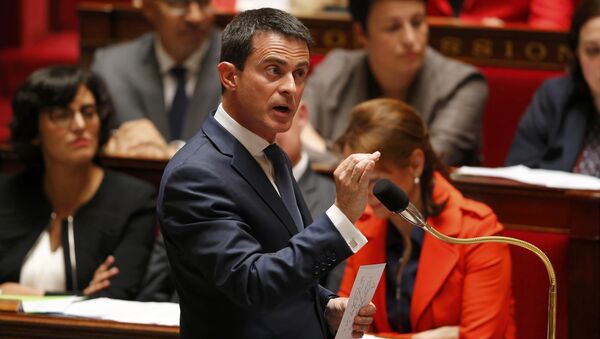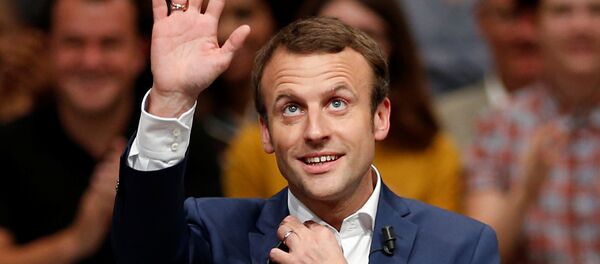France's Prime Minister Manuel Valls resigned Tuesday to join the presidential race; the 54-year-old Spanish-born politician has taken up the challenge of uniting the Left.
On Monday, Valls officially announced his bid for the Elysee Palace.
"Yes I am a candidate for the presidency," the politician told reporters on December, 5 at Evry's city hall.
In the course of his Monday speech Valls criticized the "recipes of the 1980s" for economic reforms, promoted by Republican presidential candidate Francois Fillon, and claimed that the Right's win would negatively affect ordinary French people, including pensioners and workers.
"I don't want civil servants to work more and to earn less. I don't want the poor to be unable to receive treatment, because the state does not provide free medicines to them. I don't want our children to have fewer teachers, and [I don't want] that our cities and countryside have fewer police and gendarmes," Valls said as quoted by Radio France Internationale (RFI) in a clear reference to Fillon's "shock therapy" economic program.
At the same time, Valls declared himself a political opponent of such foreign leaders as Donald Trump, Vladimir Putin, Xi Jinping, and Recep Tayyip Erdogan.
"I want an independent France, inflexible in its values faced with the China of Xi Jinping, the Russia of Vladimir Putin, the America of Donald Trump, the Turkey of Recep Erdogan. We need strong experience in this world," Valls underscored.
"Today's reality is that the Left seems to be completely atomized on the threshold of the presidential elections. There is a candidate from the Left, Jean-Luc Mélenchon, who has kicked off his campaign. Emmanuel Macron, the center-left candidate has also launched a campaign. And then the Socialist Party will organize primaries to select candidates; some of them have not yet been put forward and it is still unclear who will be nominated [for the 2017 presidential election]. So, the situation is deeply complicated for the Left," Jerome Lambert of the French center-left RRDP party told Sputnik, adding that France's left-wing politicians run the risk of being defeated in the 2017 elections.
However, Valls may face opposition within the Socialist Party.
"He will be a rallying point for people in the party. The difficulty for Valls is that many people in the Socialists party — certainly the traditional socialists — see him as rather a right-wing kind of socialist. He was very tough on security, very tough on Laïcité —secularism," Gino Raymond, Professor of Modern French Studies at the University of Bristol, UK, told Sputnik.
"So there will be some difficulty, I think, for members of the Socialist party to rally round him," Raymond suggested.
Commenting on the matter Christine Bierre, chief editor of Nouvelle Solidarite, the newspaper of the Solidarité & Progrès — the party backing presidential candidate Jacques Cheminade — also shared her vision.
"[Fillon] candidacy will meet a strong response in the Socialist Party who could choose Manuel Valls as a candidate. Valls would be a more energetic and more evil and corrupt Atlanticist version of [Francois] Hollande or [Alain] Juppe. It remains to be seen whether a stronger left wing voice emerges around [Arnaud] Montebourg and/or Melenchon. But neither of these candidates is advancing any strong financial, industrial or European reforms to match what the BRICS are doing," Bierre told Sputnik.
RFI underscores that in the event of a political "duel" Valls is likely to receive 51 percent of votes, while Montebourg may get 49 percent.
However, RFI warns that even if Valls wins the Socialist primaries he will have to compete with left-wing Melenchon and Macron.
Still, Fillon and the National Front's leader Marine Le Pen pose the greatest challenge to Valls.




